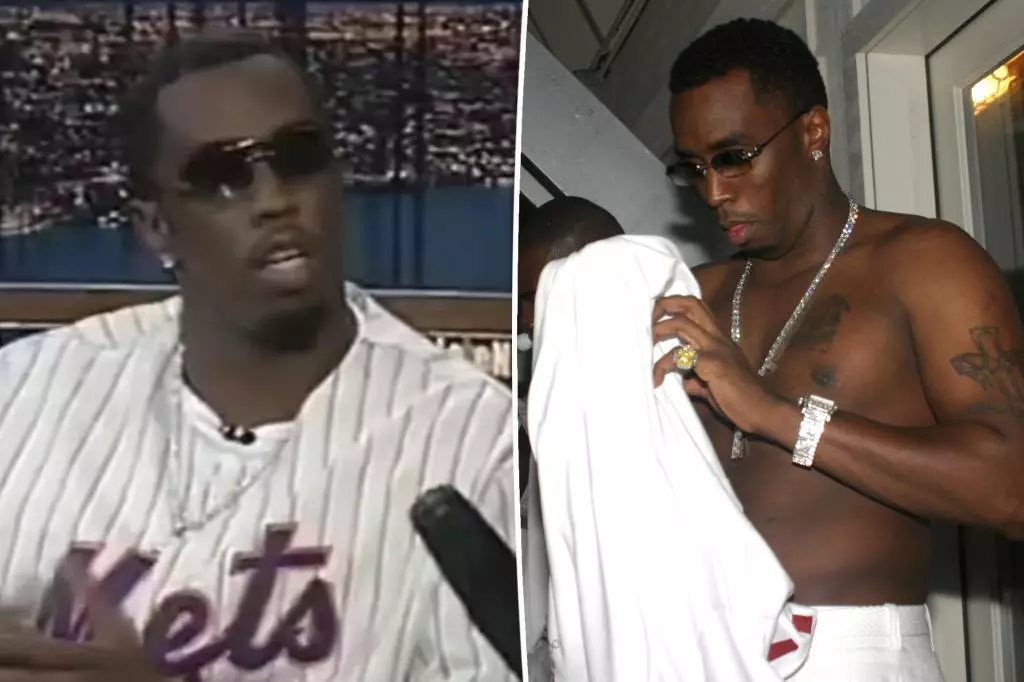Sean “Diddy” Combs, an influential figure in the music and entertainment industries, has always been associated with both glamour and controversy. His recent arrest on alarming charges such as racketeering and sex trafficking has cast a long shadow over his storied career. However, resurfaced footage from a 2002 interview with Conan O’Brien has added another layer of scrutiny, revealing troubling attitudes towards women and parties that are jarring in light of current events.
In the aforementioned interview, Combs’ comments about hosting a “killer party” revealed a warped view of relationships and consent. His insistence on the need for “locks on doors” to keep women at gatherings underscores a disconcerting notion—that a party’s success relies on controlling female attendees rather than fostering their voluntary participation. Such remarks, particularly from a public figure, reinforce harmful stereotypes and reflect a troubling power dynamic disguising itself as playful banter.
Moreover, Combs’ suggestions about ensuring women’s comfort through alcohol and water, paired with his commentary on making rooms hotter, suggest an underlying objectification. While he claimed to prioritize the needs of women, his approach insinuates that women are mere accessories to enhance male entertainment, a perspective that is not only outdated but profoundly dangerous.
The recent legal developments against Combs amplify these unsettling revelations. Facing charges that include racketeering conspiracy and sex trafficking, the gravity of the allegations cannot be overstated. Prosecutors allege that Combs engaged in coercive, predatory tactics against women for years, creating what they describe as a “criminal enterprise.” This stark contrast between his public persona and the troubling claims against him raises urgent questions about accountability in the entertainment industry.
The legal battle ahead seems equally daunting. With a potential minimum sentence of 15 years in prison looming and the judge’s refusal to grant bail, the stakes for Combs are higher than ever. His attorney’s claims of Combs’ eagerness to fight the charges and prove his innocence illustrate a complexity of character—one that oscillates between a powerful mogul and an accused perpetrator of heinous acts.
The resurgence of the interview clips invites a deeper cultural analysis concerning the responsibility of media figures. Conversations surrounding consent, power dynamics, and the portrayal of women in entertainment have evolved significantly over the years. Critically, the past must be examined to understand how today’s environment is shaped. It begs the question: how many other similar attitudes have been perpetuated by influential figures in the industry, and what can society learn from these revelations?
In navigating the fallout from Combs’ actions and words, it becomes imperative to foster an atmosphere where respect and equality are prioritized. The entertainment industry has a unique influence over societal norms; thus, it must also bear the responsibility of championing change by holding its players accountable when necessary. The tragic narratives woven into Combs’ career should serve as cautionary tales—not only of individual failures but also as reflections of broader cultural patterns in celebrity and power.

